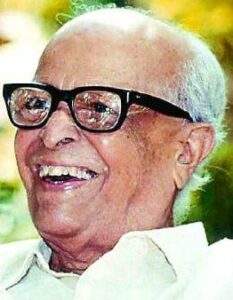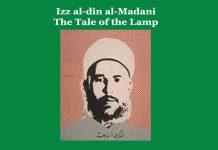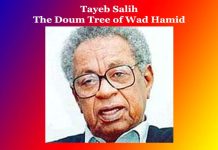R K Narayan | Father’s Help | An Analytical Study
R K Narayan | Father’s Help | An Analytical Study
R K Narayan | Father’s Help | An Analytical Study
‘Father’s Help’ is a short story written by R. K. Narayan (1906-2001) an Indian English short story-teller and novelist. The main theme of the story is a pretext for not going to school. The story depicts child psychology and shows how a child’s minds work to devise out a trick for shirking his duty.
The story revolves round a schoolboy named Swaminathan. He is a student of Albert Mission School. Like some boys he despises school going and finds a pretext for not going to school. One Monday morning he decided not to go to school and finds a pretext that he has a headache. His mother allows him to stay home but when his father comes to know about his headache then he becomes stubborn and says to him that he must go to school. Swaminathan replies that he is unwilling to go to school late as his teacher Samuel would beat him. Then Swami gives a brief but vivid imaginary account of Samuel’s violent character and says that he is so rude to the boys who go to school late. He canes the boys very vehemently and not stops till he sees blood on the boy’s hand which he makes the boy smear on his face. He also reports that once the teacher had skinned the knuckle of a boy. Hearing this Swami’s father becomes exasperated with the teacher and writes a rude letter to the Headmaster complaining against Samuel and gives it to Swami to deliver to the Headmaster. On the way while going to school Swami’s conscience bothered him for making a false statement about Samuel. However, he devises out a fault with the teacher’s treatment of his students. Going to school he finds the teacher more genial and kind than ever before. The teacher neither abuses him nor canes him. The boy, however, shows rudeness to the teacher in the class. While the school breaks then he rushes to the Headmaster’s chamber and seeing the room locked he asks the peon and comes to know that he is on a leave for a week. He does not deliver the letter and returns home straight. His father asks him about the letter and then snatching the letter from Swami’s hand tears it off and throws it into the wastepaper box and mutters that he deserves the punishment of Samuel.
There are three main Characters- Swaminathan, Samuel and Swami’s father. All bear some individual as well as type traits of character. Swami is a type of those boys who are unwilling to go to school and find an excuse for not going to school and what tactics he finds, is a type of childish wickedness. Here the author has ably portrayed child psychology. The second important character is Samuel. He is a worthy teacher. No doubt that he sometimes punishes the student for their good but at times he is kind to them also. He often makes jokes rounding Swami’s inactivity which proves that he is a person of a genial kind. The third character is the Father of Swaminathan. He is a very conscious father. He loves his son but he is strict on the matter of his son’s schooling.
The author has employed the Objective Method in narrating the story. In this method, the author keeps himself outside his story and narrates the events objectively.
The story, in Structure, is well one. The exposition is direct. The complication of the story begins with Swami’s going to school carrying about the letter written by his father to the Headmaster against Samuel. The story reaches its climax when Samuel behaves rudely in the last class taken by Samuel. The denouement happens when Samuel returns home without delivering the letter. The Setting of the story is consistent with the events and situation. The author gives a good deal of description of the atmosphere and manners of his characters.
The Dialogue employed in the story is very logical as he uses them economically but all the dialogues have taken his story a step ahead and unfold the inner nature and motives of his characters.
The author has expressed his Philosophy of Life not directly but indirectly through the story and suggests that a child suffers for his own fault.
The Language of the story is very simple as it is characterized by the use of simple, concrete and formal words and phrases, free from complicated sentence construction and harsh imagery. The following sentences may roughly be quoted as examples of the author’s simple and easy linguistic style as:
1. Loaf about less on Sundays and you will be without a headache on Monday.
2. The more he thought of Samuel the more he grieved for him.
3. He had never met a man so good as Samuel.
4. Don’t lie in addition to being a coward.
All the Qualities of a good short story as — unity of purpose, brevity, spontaneity and universality are present in it. The brevity is also maintained throughout the story as all the component elements of a good short story are employed in the story with the possible economy. Thus the universality is achieved by means of the reliable representation of the event. The story begins and ends with spontaneous logical order through proper stages.
As a short story, its Length is ideal as —neither very short nor too long.
As all the component elements along with the required qualities of a good short story are present in it in a logical order, so it may be called that it is a short story of the first grade. 0 0 0
R K Narayan | Father’s Help | An Analytical Study
Read More: R K Narayan’s Short Stroy ‘The Martyr’s Corner’-An Analytical Study
N. B. This article entitled ‘R K Narayan | Father’s Help | An Analytical Study’ originally belongs to the book ‘World Short Story Criticism‘ by Menonim Menonimus. R K Narayan | Father’s Help | An Analytical Study
Books of Literary Criticism by M. Menonimus:
- World Short Story Criticism
- World Poetry Criticism
- World Drama Criticism
- World Novel Criticism
- World Essay Criticism
- Indian English Poetry Criticism
- Indian English Poets and Poetry Chief Features
- Emily Dickinson’s Poetry-A Thematic Study
- Walt Whitman’s Poetry-A Thematic Study
- Critical Essays on English Poetry
- Tawfiq al-Hakim’s Novel: Return of the Spirit-An Analytical Study
- Tawfiq al-Hakim’s Novel: ‘Yawmiyyat Naib Fil Arayaf’-An Analytical Study
- Analytical Studies of Some Arabic Short Stories
- A Brief History of Arabic Literature: Pre-Islamic Period …
Books on Linguistics by M. Menonimus:
- A Brief History of the English Language
- Essays on Linguistics
- My Imageries
- Felicitous Expression: Some Examples
- Learners’ English Dictionary
Related Searches:
- Short Stroy Criticism
- The Indian English Short Story
- Individual and Society …
- ‘Deliverance’ by Premchand Analysis
- Summary of Rabindranath Tagore’s ‘The Exercise Book
- Short Story ‘Yellow Fish’ Essay Example
- Notes on Roger Mais’s ‘Blackout’
- ‘Blackout’ by Roger Mais
- ‘The Dog of Tetwal’ Saadat Hasan Manto
- The Three Questions
- R. K. Narayan Biography, Books
- Short Stories R. K. Narayan
- ‘Lawley Road’ by R K Narayan
- The Peasant’s Bread’ Summary Notes
- The Imp and the Peasant’s Bread
- How Much Land Does a Man Need
- How Much Land Does a Man Need? Question
- ‘A Prisoner in the Caucasus’ by Leo Tolstoy
- Leo Tolstoy ‘A Prisoner in the Caucasus’
- ‘Leela’s Friend by R K Narayan: Analysis
- Leela’s Friend by R K Narayan
- Father’s Help’ by R K Narayan
- Father’s Help R K Narayan Analysis …











